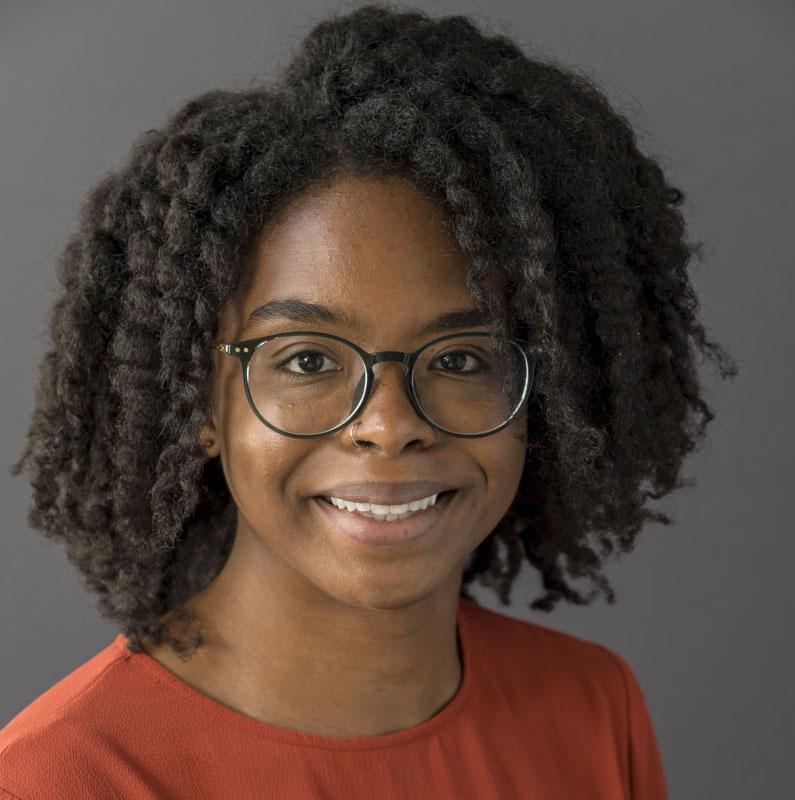After working as a visiting professor for the past semester, Morgan Jerald will permanently join the University of Wisconsin Department of Psychology in fall of 2022, bringing her research on intersectionality and stereotypes with her.
Jerald researches how young people learn about race, gender, sexuality and the stereotypes associated with these identities. Jerald said her focus recently is on stereotypes of Black women and how young people learn these stereotypes through the media. She is also interested in how awareness of stereotypes affects the health and well-being of those target groups.
“College students are a particular kind of person representing a particular demographic, and so I’m really interested in expanding my research to community samples,” Jerald said. “So actually going out into the community in Madison or Milwaukee for example, and also working with older women.”
Jerald is also interested in studying younger populations. One current project she is excited about is a study of teenage girls in the U.S. and U.K. from different ethnic backgrounds. This age is a time of significance for gender identity and body image, and Jerald said the project will look at many different variables related to the issues facing teenage girls.
Jerald was an assistant professor of psychology at Macalester College for the past four years. Taking a sabbatical from Macalester for the spring semester, she joined UW as a visiting assistant professor and came to Madison in January.
For her, the extra time and resources at UW will allow her to expand her research to demographics she hasn’t previously been able to study. Jerald said she enjoyed visiting Madison before permanently joining the UW faculty.
“It was really nice to be able to familiarize myself with the department and my colleagues, and then I just accepted an offer to stay here on a tenure-track position long term,” Jerald said.
The Intersectionality and Marginalization Lab will move from Macalester to UW with Jerald. The name reflects the lab’s focus on how different systems of oppression and social identities intersect to influence people’s experiences, Jerald said.
The Reproducibility Crisis: What happens when scientists can’t recreate established findings?
Jerald is one of three Black professors recently hired by the UW Department of Psychology. Demis Glasford will also start in fall 2022 along with Jerald, and Ashley Jordan will join the faculty in fall of 2023. When accepting her position at UW, Jerald said it was important she would not be the only person of color being hired to the predominantly white faculty, especially since the department had only two tenured faculty of color.
“I think having those numbers and representation helps bring a really important perspective to discussions and decisions that are being made in the department,” Jerald said. “I think it also influences the kinds of students that come for graduate school and also the kinds of students that want to pursue psychology as a major in undergrad.”
It is very important for students of color to have role models in the fields they want to work in, Jerald said. More representation could help attract students who may not be traditionally interested in psychology and lead to greater diversity of psychology students. Through research and teaching, Jerald is looking forward to having quality interactions with these students.
Jerald began her academic career as an undergraduate student at Spelman College, a historically Black, all-women’s college. It was at Spelman where she began doing research on eating disorders and body image, prompted by watching her own peers struggle with these issues. Jerald later completed her PhD in psychology at the University of Michigan.
“I’ve always had that baseline foundation of being interested in gender and race and sex and the media from my undergrad experiences,” Jerald said. “And I think I moved away quite a bit from studying eating disorders, I almost don’t study that at all. I think that’s because I became really interested in, as women mature, that sex and sexuality become this really big part of how they think about their body image.”
Moving from a small liberal arts school to a major research university will allow Jerald to take a “deep dive” into her research, she said. She is looking forward to the chance to collaborate with other members of the psychology department, along with different departments on campus. Jerald said her research is interdisciplinary and intersects with Women’s Studies and Communication.
Madison celebrates 50 years of conservation parks, Earth Day
While some institutions look down on interdisciplinary work and prefer research that is traditionally psychology-based, Jerald said UW embraced the multiple perspectives and cross-departmental connections of her work.
After heavy teaching requirements and the pandemic, Jerald said she is eager to reconnect with her research at UW.
“I think it’s easy to forget that I really love what I do, beyond this very stressful time. And also that I really believe that my research questions are really important,” Jerald said. “So I’m just kind of excited about getting back to that.”














